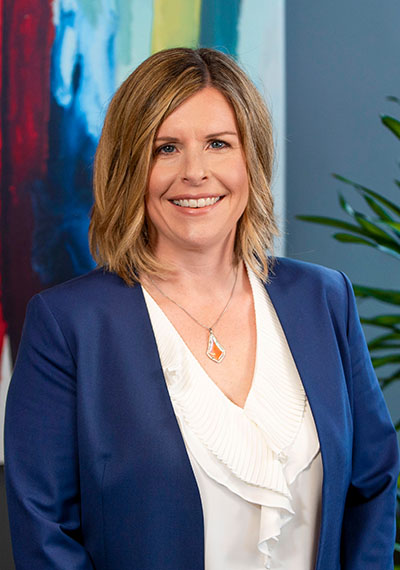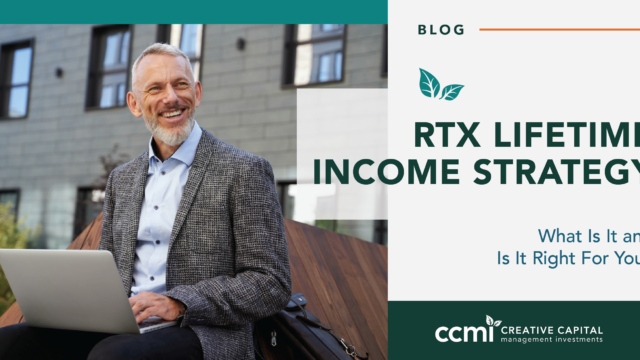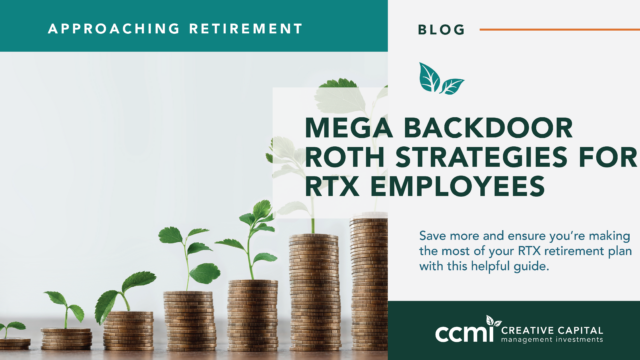As you approach retirement age, a moment may arise when your concerns shift from raising and supporting your children to the care of your aging parents. You may be making your way as season in the “sandwich generation.” As a pre-retiree, you may need to balance the needs of your parents and your own in your retirement planning even if you’re not the primary caregiver. It’s a stage that requires financial and emotional considerations. Let’s explore how to prepare if you’re in this situation, from financial planning and setting expectations to overall well-being.
The Empty Nest Transition and Retirement Planning
At CCMI, most pre-retirees we meet have adult children who no longer require financial support. However, as you get closer to retirement, the passing of time, proximity, and your parents’ health may bring about a range of emotions, such as feelings of responsibility, stress, or even guilt. As children leave the home and become independent, clients often reassess priorities and how they’ll allocate resources, such as time and finances, to support their elderly parents.
For example, proximity is a primary concern for retirees wishing to be close to their aging parents, which may affect how much support they can provide. Let’s say your parents live in San Diego, a city with one of the country’s highest living costs. Can you afford a San Diego retirement in order to be closer to your parents for support? Discussing your concerns and plans with a professional is important to determine if staying close or relocating is a viable option. Read more about the pros and cons before you retire in San Diego.
How to Financially Support Aging Parents in Retirement
If you’re caring for elderly parents full time or partially in your retirement, there are several financial planning factors you should address. It’s helpful to talk to your parents about finances, budgeting, hypothetical scenarios, and how to adapt to changing circumstances so everyone’s on the same page. This may include:
- Assessing your and your parents’ finances. The foundation of retirement planning begins with understanding your current and future assets, liabilities, income, and expenses. Examine your parents’ resources, including any long-term insurance they may hold. This will provide a baseline from which to work to estimate potential future costs, such as home modifications, medical expenses, long-term care insurance, or assisted living facilities for you and your parents. A financial advisor can help you sort through these details to ensure you prepare for various situations.
- Setting clear financial goals that honor your and your parents’ wishes. This should include goals related to your retirement and caregiving, any significant milestones, and how much you may need to support your parents full time or on a limited basis. Plan to monitor and tweak your financial plan as circumstances change, such as reassessing investments, insurance needs, and budgets.
- Addressing legal and medical needs. Whether or not you are the primary caregiver, you can still advocate for your parents to ensure they have the necessary legal documents and assist with medical decisions when needed. For example, you can discuss estate plans, wills, a power of attorney, and healthcare directives. Partner with your financial professional and an attorney skilled in these areas for further guidance.
Keep open and honest communication and involve your parents in as many decisions as possible. Discuss how much time, money, and support you’ll provide and your limitations to help manage expectations. These conversations, which we often facilitate at CCMI, may also include your adult children.
The Emotional Toll of Caring for Aging Parents in Retirement
It’s natural to feel a sense of responsibility and experience the emotional toll of knowing your parents are aging and may need support. As you plan for retirement, consider these non-financial factors so you can prepare and maintain your own well-being:
- Balance priorities. From your schedule to your personal and professional commitments, consider how much time you can realistically devote to caregiving or limited support to avoid burnout.
- Self-care and boundaries. Find ways to nurture your overall well-being through exercise, meditation, counseling, or support groups. Set boundaries to avoid overextending yourself, prioritize your needs, and respect your parents’ independence and dignity.
- Seek support. Share responsibility by enlisting friends and family or researching local resources and services that may assist you and your parents, such as senior centers, meal delivery programs, or transportation services.
How CCMI Helps Retirees Care for Elderly Parents
Caring for your elderly parents after you retire can be financially and emotionally taxing but the opportunity to provide support and care for those who cared for you can also be very gratifying. You can help strike this delicate balance by seeking professional advice, maintaining open communication, and remembering to prioritize your well-being. While there is no one-size-fits-all way to navigate retirement planning and caring for aging parents, you’re not alone. Our team at CCMI is here to help you take proactive steps and assist in the following ways and more:
- Helping you address questions about estate planning, long-term needs, and unexpected situations
- Facilitating conversations and collaborating with your attorney, team of professionals, and extended family
- Monitoring and adjusting your plans based on new needs or preferences
It’s essential to approach your retirement planning and the evolving needs of your parents with empathy, understanding, and flexibility. Contact our team if you need help making informed decisions, allocating resources, or creating a customized retirement plan that addresses your goals and the needs of your aging parents.
CCMI provides personalized fee-only financial planning and investment management services to business owners, professionals, individuals and families in San Diego and throughout the country. CCMI has a team of CERTIFIED FINANCIAL PLANNERTM professionals who act as fiduciaries, which means our clients’ interests always come first.
How can we help you?






